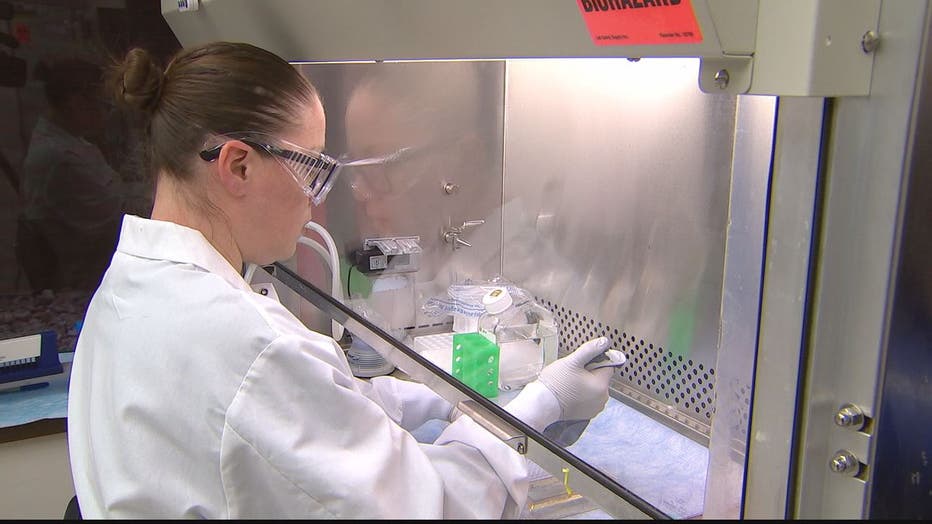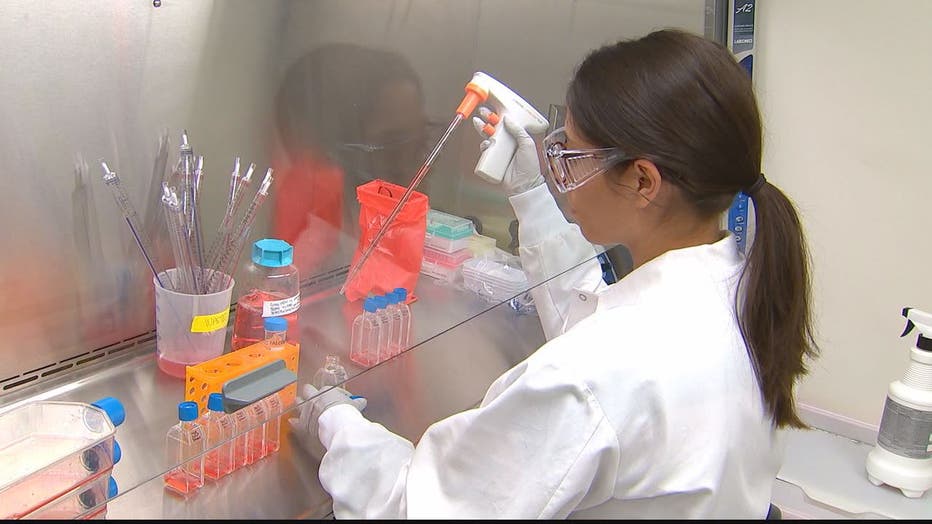Maryland biotech firm anticipates coronavirus vaccine in three months

Biotech firm anticipates coronavirus vaccine in 3 months
As the number of novel coronavirus cases surpassed 20,000 worldwide Monday, the rush is on to develop drugs to treat it and prevent further spread. Gaithersburg, Maryland-based biotechnology firm Novavax is among them.
GAITHERSBURG, Md. (FOX 5 DC) - As the number of novel coronavirus cases surpassed 20,000 worldwide Monday, the rush is on to develop drugs to treat it and prevent further spread. Gaithersburg, Maryland-based biotechnology firm Novavax is among them.
The company received the gene for the novel coronavirus Sunday night and hurriedly began cloning it first thing Monday morning. It’s the first step in the process of developing a vaccine that could potentially save thousands of lives.
Download the FOX 5 DC News App for Local Breaking News and Weather
Novavax is one of about a dozen companies that have announced vaccine or drug development initiatives since the outbreak started in Wuhan, China about a month ago.
As a company that currently develops flu and RSV vaccines, President of Research and Development Dr. Gregory Glen, believes they’re in a good position.
“So we have two vaccines that we’re working on that are respiratory viruses. They share a lot of the themes that coronavirus has as far as how it infects people, what it does in the lungs, so we have a really good sense that our technology could work for a coronavirus vaccine," said Glen.

Inside the Novavax lab, scientists like Dr. Nita Patel make the company’s next-generation vaccines using recombinant nanoparticle technology. It allows them to replicate what happens in an infection without actually giving someone the infection and in doing so, they create a strong immune response to that specific virus.
They begin the process using a gene sequence that’s available on the internet and don’t ever need the actual virus in the development process.
Although most vaccines take years, even up to a decade, to reach the market, Novavax is working with an extremely aggressive timeline and believes their novel coronavirus vaccine could be ready for human trials in a matter of months.
Director of Vaccine Development Dr. Nita Patel says, “We have the history of the vaccine for Ebola and other viruses that we could make within three months, so we’re hoping that within three months that we will have a successful vaccine.”


